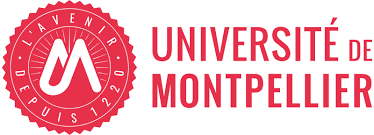

Good oral health is an essential component of overall health and contributes to well-being and quality of life. However, oral diseases remain a significant health issue in Europe, particularly for vulnerable patient groups such as frail older adults, individuals with severe mental health conditions, and people with intellectual disabilities. These patient groups require specialized attention when receiving oral care, including advanced knowledge and skills. It became evident that professionals in oral healthcare, nursing, and social work lacked the necessary expertise to ensure high-quality, interprofessional oral care for vulnerable patient groups.
The aim of the project was to develop education to improve oral healthcare for vulnerable patient groups, including frail older adults, individuals with severe mental health conditions, and people with intellectual disabilities. The plan focused on fostering closer collaboration and information sharing between future oral healthcare and care professionals regarding patients' overall health status. This required both oral healthcare professionals and care professionals to develop knowledge and skills related to medical and psychological conditions, oral health, and behavioral aspects specific to these vulnerable groups.
Three educational modules were developed to enhance the curricula of Dental Hygiene, Oral Health, Nursing, and Social Work programs. These modules aim to help students gain more knowledge and improve collaboration, with the ultimate goal of improving the oral health of vulnerable patients. Interprofessional collaboration was integrated to be able to understand each other’s fields and addressing problems together.
Oral healthcare professionals, nurses, and social workers were actively involved in the educational process. They participated in workshops to share their practical experiences. Evaluations were conducted to assess whether the modules met the needs and expectations of students and professionals. If necessary, the modules were adjusted based on feedback from students and professionals.
Teachers can use the developed educational materials (everything in English) and integrate it into their curriculum. Students can take the course through our platform Moodle, with their own instructor grading the assignments. Or teachers use parts of the modules to apply in their own teaching program. More information about the content of the modules can be found in the community Oral Health for Frail People on Edusource. Here you will also find the recording of the online Multiplier event (recorded 13th February 2025), in which teachers of the project group explain three modules using examples from the educational material.
This module provides an in-depth exploration of the intricate relationship between mental, motor, and neurological disabilities and oral health. Emphasis is placed on clinical approaches, addressing challenges, and understanding the critical connection between oral health and systemic well-being, all of which are essential for delivering comprehensive patient care.
A significant focus is also given to the unique needs of elderly and frail individuals, highlighting the barriers they face in accessing oral healthcare and exploring practical solutions to ensure inclusive and effective dental practices. By tracing the evolution of healthcare, the module examines strategies for promoting oral health, implementing preventive measures, and designing tailored professional interventions. These efforts aim to improve access to care, prevent oral diseases, and foster equitable, integrated approaches that enhance overall health outcomes.

This module highlights the transformative power of teamwork in advancing oral health care, particularly for individuals with special needs. By fostering collaborative efforts among nurses, oral health professionals, and social workers, it emphasizes the importance of a holistic approach that integrates diverse expertise to address complex patient needs effectively.
Through interdisciplinary education, participants will gain insights into the value of shared knowledge and cooperation, enhancing communication and fostering a unified approach to care. This collaborative framework not only improves the delivery of oral health education and interventions but also strengthens teamwork, ensuring comprehensive and patient-centered outcomes.

"This project showcases how interdisciplinary education plays a crucial role in tackling oral health issues within vulnerable communities. Through combining the knowledge of nursing, social work, and oral health fields, the program not only fills current skill deficiencies but also promotes a teamwork approach crucial for comprehensive oral care."
An international collaboration




"This project is important because it highlights the critical link between oral health and overall well-being while addressing the unique challenges of providing care to diverse populations. By integrating these modules, it encourages a multidisciplinary approach, strengthens practical expertise, and promotes inclusive, equitable healthcare—ultimately enhancing outcomes for individuals and communities."